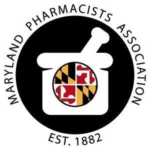Maryland Pharmacists Association Director: Importing Drugs May Endanger Patients
 This editorial by Aliyah N. Horton, the executive director of the Maryland Pharmacists Association, was published in the Baltimore Sun on July 19, 2017.
This editorial by Aliyah N. Horton, the executive director of the Maryland Pharmacists Association, was published in the Baltimore Sun on July 19, 2017.
Importing Drugs May Endanger Patients
In today’s uncertain health care climate, efforts to ensure Marylanders’ access to affordable health care must be of paramount importance to our state and federal legislators. Gov. Larry Hogan takes this responsibility seriously. Having battled cancer himself, he understands what’s at stake for Marylanders needing access to care. To that end, the state government, the University of Maryland and more than 150 local companies recently announced the creation of the National Institute for Innovation of Manufacturing Biopharmaceuticals (NIIMBL) to focus on tackling today’s most pressing medical challenges, including Alzheimer’s, cancer and chronic diseases. The NIIMBL is charged with bringing safe biopharmaceutical products to market and will create new jobs in the biomanufacturing sector. The $250M research and development initiative will help Maryland companies create advanced medicines and train local workers to manufacture them.
Unfortunately, a new federal proposal to allow the importation of prescription drugs from foreign pharmacies would thwart this growth and may expose patients to harmful counterfeit medicines.
Pharmacists are on the front lines and interact daily with patients who are faced with rising medication costs and seeking answers to how they can affordably manage their health challenges. We understand the impetus for legislators seeking importation as an avenue to address this issue. However, we know that allowing imported drugs poses a huge public health risk to patients. The origins of imported drugs are often masked, usually to hide the fact that such drugs contain contaminated, expired or counterfeit ingredients. One FDA study found that many online prescription medicines coming from the United Kingdom, Canada, Australia and New Zealand actually contained unapproved or potentially counterfeit drugs and originated in other places, including India, China and Mexico.
FDA officials have testified that “many drugs obtained from foreign sources that either purport to be or appear to be the same as U.S.-approved prescription drugs are, in fact, of unknown quality. When consumers take such unsafe or inappropriate medications, they face risks of dangerous drug interactions and other serious health consequences.”
We are concerned. Patients should be concerned.
Congress passed the very meaningful Drug Supply Chain Security Act to protect against counterfeit medication. We have the safest drug supply in the world, and that helps protect the American public.
The first line of the Oath of a Pharmacist reads, “I will consider the welfare of humanity and relief of suffering my primary concerns.” As such, the Maryland Pharmacists Association (MPhA) strongly discourages the importation of potentially unsafe drugs. We encourage elected officials to look at other avenues to improve patient access, safety and drug affordability by working to lower drug prices through competition and seeking greater transparency about the role pharmacy benefit managers play in the increased costs to consumers.
Speeding up the drug approval process would increase competition among drug companies, forcing them to discount their products. The most direct way to do this would be to reauthorize the Prescription Drug User Fee Act (PDUFA). Established in 1992, PDUFA requires drug companies to pay fees to the FDA when they seek approval for their products. That extra revenue provides additional pharmacists, staff and other resources necessary to expedite the approval process. It’s worked tremendously well — now, the FDA approves standard drugs in just 12 months and priority drugs in under eight. That’s much faster than the pre-PDUFA era, when reviews frequently took years.
Streamlining the system would lower costs for patients without risking Marylanders’ safety or thwarting the growing biopharmaceutical industry that benefits from the expertise of pharmacists in our state.
For the sake of patient safety and to continue to build our economy, MPhA urges legislators to vote for homegrown innovation and against unsafe drug importation.